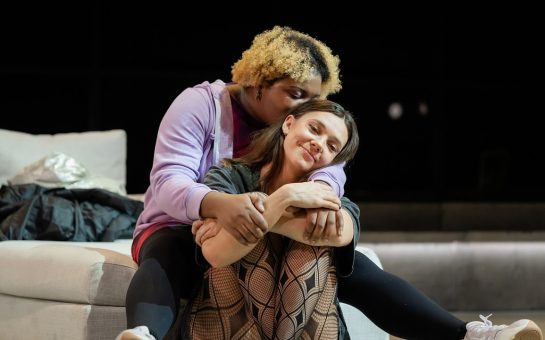Cannes regular Ken Loach’s latest offering is another traumatising but important no-thrills inquiry into poverty in the UK, this time focusing his lens on zero-hour contracts.
Sorry We Missed You, the spiritual sequel to his Palme D’or winning I, Daniel Blake from 2016, follows Ricky (Kris Hitchen) and his family in Newcastle.
They’ve been brutally affected by the 2008 financial crash, losing their mortgage when Northern Rock liquidated, as well Ricky losing his building work. His wife Abbie (Debbie Honeywood) works as an in-home carer, Ricky flits from job to job, unable to keep steady work as they struggle to pay their rent in their new home.
Ricky gets tipped off by a friend to a vacancy as a delivery driver, the perfect job for a ‘grafter’ like him, offering the possibility for him to be his own boss – supposedly.
The job requires you to hit near impossible hourly targets to get paid on a zero hour contract, with hefty fines for missing ‘precisors’, which are parcels that need to be delivered at a certain time.
His boss Maloney (Ross Brewster), who’s the sort of bloke who’d spill his pint on you in the pub and then punch you for it, explains all this to him in his office with a burning intensity that fills the room, an intensity which carries through to the workplace.
Ricky is warned to never lose his ‘gun’, the electronic device you’ll have seen delivery drivers with, which serves as a sat nav and scanner, as well as doubling up as a Maloney-In-Your-Pocket.
Beeping at him whenever he’s stationary for too long, it’s the 21st century equivalent of a whip to the back.
Abbie has to sell her car so Ricky can afford a van for the job, which adds further strain to the couple’s already stretched relationship with their two children, as the pair now get in even later from work.
Their kid genius young daughter Liza Jane (Katie Proctor) puts herself to bed and cooks her own meals, whilst mardy teenager Seb (Rhys Stone) channels his artistic energy by spraying the cities walls with his graffiti tag.
Abbie goes from client to client, bus route to bus route, performing wake-ups and tuck-ins, making sure everyone treated to the best of her ability in the short time frame she gets.
She too is on a zero-hour contract, and through her Loach jabs at the marketisation of healthcare, as she is forced to refer to the people she sees and cares for everyday as clients, and not share her personal details.
This dehumanisation of the people she cares for is made all the more harrowing by how carefully Loach fleshes out these characters, from the man who needs assistance going to the bathroom to the elderly women who don’t even recognise her.
Some of them are only shown for seconds, but in them you see your grandparents, your uncle, the family friend who fell ill. They are real people, and Loach demonstrates this with a delicacy that only a filmmaker such as himself could produce.
He’s helped by the fact he hires mostly non-actors to play these roles, as lines are repeatedly stuttered, which whilst probably originally an error, works to the films benefit.
The dialogue seems genuine, half finished sentences and stammered openings are far more genuine than eloquently dictated arguments.
Meanwhile, Ricky drives from house to house, parcel to parcel. He banters about football with some customers, and gets nothing but grief from others.
Their life gets gradually more miserable as they live from shift to shift, leaving little time to focus on themselves, never mind each other.
This distance leads Seb to spend even less time in school, and more time spray painting the town. Inevitably, tensions rise, bad hand after bad hand is dealt and when Ricky finally needs to take a day off work for a real human problem, he is rebuffed by ‘nasty b*stard’ Maloney, a hefty fine follows.
Their supposedly freedom-filled contracts only beget misery, a heartwarming scene of the family eating a takeaway is swiftly interrupted by Abbie getting called out to work. Their zero-hour contracts turn out to be 24-hour contracts in disguise.
Loach expertly critiques the contracts, the workplace culture they create (Ricky is given an empty bottle to urinate in on his first day), and the sort of life they lead to throughout the film, and just when you think there’s a glimmer of hope, a spark of happiness, he slaps another cinematic fine on the audience for being so naive.
Sorry We Missed You followings in the footsteps of his previous effort I, Daniel Blake, and the veteran filmmaker is showing no signs of backing down from his trademark scathing social criticism as he approaches his mid 80s.
This isn’t necessarily a film you’ll enjoy, but it’s a film you need to see.
Sorry We Missed You is currently scheduled for a November UK release date.



